CORPORATE ACTION: Aldi
Aldi Joins The Refill Coalition In Pushing For Reduction In Single-Use Plastic Packaging
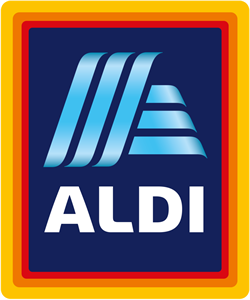
UK retailer Aldi has joined the Refill Coalition, which is working to co-design an innovative refill solution. The group’s solution could help reduce the 56.6 billion units of single-use plastic packaging sold each year in the country. Other members of the group are Ocado, Waitrose & Partners and supply solutions provider CHEP. The group was convened in 2020 by the country’s leading refill technology company Unpackaged, with funding support from the UK Research & Innovation’s Smart Plastics Packaging Challenge. [Image Credit: © ALDI]
CORPORATE ACTION: Coca-Cola
Coca-Cola Reports Increased Production Of Single-Use Plastic Bottles In 2022
 The Coca-Cola Company’s share of products sold in reusable packaging dropped from 16 percent in 2021 to 14 percent in 2022. The company’s latest sustainability report did not highlight the decline and instead Coca-Cola said the decline was due to changes in reporting metrics. Also, the company said its overall use of plastic packaging and virgin plastic increased in 2022.[Image Credit: © Oceana, Inc.]
The Coca-Cola Company’s share of products sold in reusable packaging dropped from 16 percent in 2021 to 14 percent in 2022. The company’s latest sustainability report did not highlight the decline and instead Coca-Cola said the decline was due to changes in reporting metrics. Also, the company said its overall use of plastic packaging and virgin plastic increased in 2022.[Image Credit: © Oceana, Inc.]
CORPORATE ACTION: Henkel
Henkel Tries Manufacturing 100% PCR Blister Packs For Cleaning Product
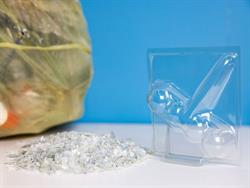
Henkel is implementing a pilot project involving the use of 100% post-consumer recycled plastic in the manufacture of blister packs for the WC FRISCH Kraft Aktiv Pro Nature Pack cleaning product. The PCR is made of more than 80 percent recycled PET trays previously used in food packaging. Henkel is using PET trays from the Yellow Bag, which are “particularly suitable for high-quality processing”.[Image Credit: © Henkel AG & Co. KGaA]
CORPORATE ACTION: Procter & Gamble
Head & Shoulders Offers Anti-Dandruff Shampoo In 100% Recyclable Packaging
.jpg&width=250&height=193)
P&G’s haircare brand Head & Shoulders said its BARE line of anti-dandruff shampoo comes in a fully recyclable packaging that has 45% less plastic per ml compared with the brand’s 370ml bottle. Also, the company has packaged its haircare brands, Head & Shoulders, Pantene, Herbal Essences, and Aussie, in recyclable, FSC-certified paper boxes. BARE Pure Clean for oily scalp and hair and BARE Soothing Hydration for dry scalp and hair are available exclusively at Walmart.[Image Credit: © Procter & Gamble]
P&G Chief Sustainability Officer Highlights Company’s Achievements In Sustainability
.jpg&width=250&height=214) P&G’s chief sustainability officer, Virginie Helias, said sustainability has become central to how the company does business from being a peripheral issue years ago. She said the company launched the Ambition 2030 program in 2018 to enable and inspire responsible consumption across the supply chain, brands, employees, and partnerships. Also, the company has integrated sustainability and innovation, making sustainability an integral part of the product development process. She added that the company is halfway to its goal of having 100% of innovations “irresistibly superior for consumers” and improves sustainability on any of “climate, waste, water, and nature”.[Image Credit: © Procter & Gamble]
P&G’s chief sustainability officer, Virginie Helias, said sustainability has become central to how the company does business from being a peripheral issue years ago. She said the company launched the Ambition 2030 program in 2018 to enable and inspire responsible consumption across the supply chain, brands, employees, and partnerships. Also, the company has integrated sustainability and innovation, making sustainability an integral part of the product development process. She added that the company is halfway to its goal of having 100% of innovations “irresistibly superior for consumers” and improves sustainability on any of “climate, waste, water, and nature”.[Image Credit: © Procter & Gamble]
P&G Thailand and Partners Launch Program Using Recycled Plastic As Housebuilding Material
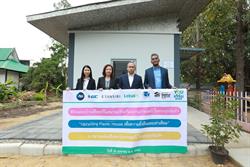 Procter & Gamble has partnered with GC, Sansiri, Lotus and Habitat Group to launch Upcycling Plastic House for Sustainability and Equity, a program aimed at using recycled plastic as a housebuilding material in Thailand. Empty plastic containers of P&G shampoo products are collected and recycled through the You Turn Platform. P&G Thailand has been operating under a circular economy business model and has launched several sustainability projects.[Image Credit: © PTT Global Chemical Public Company Limited]
Procter & Gamble has partnered with GC, Sansiri, Lotus and Habitat Group to launch Upcycling Plastic House for Sustainability and Equity, a program aimed at using recycled plastic as a housebuilding material in Thailand. Empty plastic containers of P&G shampoo products are collected and recycled through the You Turn Platform. P&G Thailand has been operating under a circular economy business model and has launched several sustainability projects.[Image Credit: © PTT Global Chemical Public Company Limited]
CORPORATE ACTION: Unilever
Unilever Calls For Legally Binding International Plastic Treaty
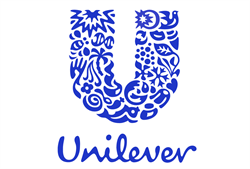
Unilever is supporting calls for a Global Plastics Treaty that will legally require governments, industries and other stakeholders to reduce the production and use of plastic. The company claims that voluntary efforts have so far failed to address the global problem of plastic pollution. As a member of the Business Coalition for a Global Plastics Treaty, Unilever supports the organization’s vision for a circular economy.[Image Credit: © Unilever]
Unilever Says 55% Of Plastic Packaging Already Reusable
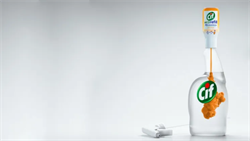 Marking the occasion of World Recycling Day 2023, Unilever revealed that 55 percent of its plastic packaging is already reusable. The company’s Unilever Compass sustainability strategy includes reducing its use of virgin plastic by 50 percent by 2025. Also, the company has entered into partnerships with leading sustainability groups, such as Ecoembes and Ceflexwithin.[Image Credit: © Unilever]
Marking the occasion of World Recycling Day 2023, Unilever revealed that 55 percent of its plastic packaging is already reusable. The company’s Unilever Compass sustainability strategy includes reducing its use of virgin plastic by 50 percent by 2025. Also, the company has entered into partnerships with leading sustainability groups, such as Ecoembes and Ceflexwithin.[Image Credit: © Unilever]
Unilever Philippines Works With Greencycle Innovations To Do Better Than EPR Law’s Plastic Waste Target
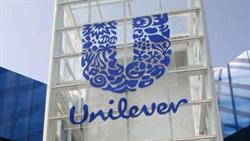 Unilever Philippines is collaborating with Greencycle Innovations Inc. to do better than the 20% plastic waste diversion target for the first year of implementation of the Extended Producer Responsibility law. The country’s EPR Act of 2022 requires companies to “adopt and implement policies for the proper management of post-consumer plastic packaging waste”.[Image Credit: © Unilever]
Unilever Philippines is collaborating with Greencycle Innovations Inc. to do better than the 20% plastic waste diversion target for the first year of implementation of the Extended Producer Responsibility law. The country’s EPR Act of 2022 requires companies to “adopt and implement policies for the proper management of post-consumer plastic packaging waste”.[Image Credit: © Unilever]
CORPORATE ACTION: Other
Google Opens Single-Use Plastic Packaging Challenge
 Google has launched the company’s Single-Use Plastics Challenge aimed at giving food companies the opportunity to try packaging that does not include single-use plastic. The tech company has worked with food service management company Canteen and other food service partners in hosting the challenge. Criteria for joining the challenge include meeting federal, state and local food safety regulations and Google Food program standards for health, environmental, social and financial considerations.[Image Credit: © Google]
Google has launched the company’s Single-Use Plastics Challenge aimed at giving food companies the opportunity to try packaging that does not include single-use plastic. The tech company has worked with food service management company Canteen and other food service partners in hosting the challenge. Criteria for joining the challenge include meeting federal, state and local food safety regulations and Google Food program standards for health, environmental, social and financial considerations.[Image Credit: © Google]
SC Johnson Broadens Partnership With Ocean Generation To Reach More UK Children
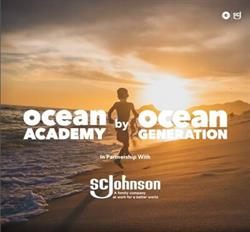
SC Johnson is expanding its collaboration with UK charity Ocean Generation to reach more young people across the country and provide information about the ocean and sustainability. The partners are searching for ways to interact with more children in and outside the classroom through the Ocean Academy digital learning hub for teachers, educators and parents. Marine conservation charity Sea Trust Wales is the Ocean Academy’s first partner and provider of learning materials.[Image Credit: © PRNewsfoto/SC Johnson]
SC Johnson Expands Collaboration With Ocean Generation To Promote Sustainability Among Young People In UK
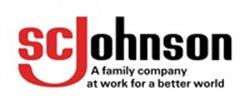 SC Johnson is expanding its partnership with UK charity Ocean Generation to encourage young people’s participation and support for protecting the ocean and dealing with plastic waste. Through the Ocean Academy program open-source digital learning hub, the partners are seeking ways to engage with more children in both classroom and non-classroom settings. Also, with SC Johnson’s financial support, Ocean Generation is launching residencies with partners, such as museums, aquariums, and other non-formal education facilities.[Image Credit: © SC Johnson/PRNewswire]
SC Johnson is expanding its partnership with UK charity Ocean Generation to encourage young people’s participation and support for protecting the ocean and dealing with plastic waste. Through the Ocean Academy program open-source digital learning hub, the partners are seeking ways to engage with more children in both classroom and non-classroom settings. Also, with SC Johnson’s financial support, Ocean Generation is launching residencies with partners, such as museums, aquariums, and other non-formal education facilities.[Image Credit: © SC Johnson/PRNewswire]
CAMPAIGNS, COMMITMENTS & NGOs
Horizontal Recycling Gains Popularity As Plastic Recycling Method In Japan
.jpg&width=250&height=167) Horizontal recycling, a material recycling process applied in recovering and processing used products into raw materials that can be used to remanufacture the original products, is becoming popular in Japan. At the same time, horizontal recycling is expanding beyond plastic bottles to include refill packaging used for daily-use products, such as shampoo and dishwashing liquid. The city government of Kobe partnered with 16 manufacturers, retailers, and recycling companies to launch in October 2021 its Kobe Plastic Next initiative to collect refill packaging from detergent, shampoos, and other everyday items at 75 retail stores.[Image Credit: © Magda Ehlers from Pexels]
Horizontal recycling, a material recycling process applied in recovering and processing used products into raw materials that can be used to remanufacture the original products, is becoming popular in Japan. At the same time, horizontal recycling is expanding beyond plastic bottles to include refill packaging used for daily-use products, such as shampoo and dishwashing liquid. The city government of Kobe partnered with 16 manufacturers, retailers, and recycling companies to launch in October 2021 its Kobe Plastic Next initiative to collect refill packaging from detergent, shampoos, and other everyday items at 75 retail stores.[Image Credit: © Magda Ehlers from Pexels]
ALLIANCES, PARTNERSHIPS & JVs
Global Treaty On Plastic Pollution Moves Closer To Completion
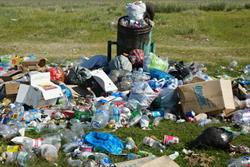 The United Nations is sponsoring a meeting of representatives from countries, business groups and environmental activists aimed at promoting a proposed Global Treaty on Plastic Pollution. The meeting starts on May 29, 2023, and is expected to continue the push for the legally binding agreement, which began in 2022 at the First Session of the Intergovernmental Negotiating Committee on Plastic Pollution. Some of the major questions include those that focus on the scope of the treaty and how lobbying by activists and business interests would impact the final form of the treaty. Faced with the still fast-growing plastic pollution problem, negotiators aim to have a final draft ready for ratification in 2024.[Image Credit: © Ariungoo Batzorig on Unsplash]
The United Nations is sponsoring a meeting of representatives from countries, business groups and environmental activists aimed at promoting a proposed Global Treaty on Plastic Pollution. The meeting starts on May 29, 2023, and is expected to continue the push for the legally binding agreement, which began in 2022 at the First Session of the Intergovernmental Negotiating Committee on Plastic Pollution. Some of the major questions include those that focus on the scope of the treaty and how lobbying by activists and business interests would impact the final form of the treaty. Faced with the still fast-growing plastic pollution problem, negotiators aim to have a final draft ready for ratification in 2024.[Image Credit: © Ariungoo Batzorig on Unsplash]
CONSUMER & PUBLIC OPINION
Most Americans Think Humans Are Doing A Great Job Recycling Plastics
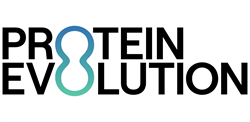 In the United States, 93% of adults overestimate the percentage of plastic products that are recycled and reused every year. Results of the survey, conducted by Protein Evolution and Wakefield Research in April 2023, also revealed that 35% of respondents believe that half or more of plastic products are recycled, compared with the 5-6% discovered by Greenpeace in 2021. Also, more than 4-in-5 Americans think they are, at least, “somewhat knowledgeable about ways to reduce plastic waste” in their daily life. The research also showed that 69% of respondents do not know that crude oil is used to manufacture new plastic products.[Image Credit: © Protein Evolution, Inc.]
In the United States, 93% of adults overestimate the percentage of plastic products that are recycled and reused every year. Results of the survey, conducted by Protein Evolution and Wakefield Research in April 2023, also revealed that 35% of respondents believe that half or more of plastic products are recycled, compared with the 5-6% discovered by Greenpeace in 2021. Also, more than 4-in-5 Americans think they are, at least, “somewhat knowledgeable about ways to reduce plastic waste” in their daily life. The research also showed that 69% of respondents do not know that crude oil is used to manufacture new plastic products.[Image Credit: © Protein Evolution, Inc.]
PACKAGING REDESIGNS
CPG Companies Rethink Packaging To Expand Container Reusability
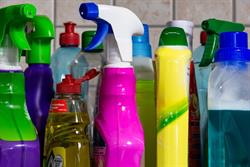 Large consumer packaged goods companies are coming up with reusable packaging to meet their plastics reduction and environmental, social, and governance goals. This increase in interest in reusable packaging is driven by the low rate of plastic recycling worldwide estimated at 14% or between $80 billion and $120 billion in estimated value of lost material value. The Ellen MacArthur Foundation has proposed four models for packaging designed for reuse. Options available for CPG companies and consumers include containers refillable at home, refillable in a store, and returnable containers for refill elsewhere.[Image Credit: © Willfried Wende from Pixabay]
Large consumer packaged goods companies are coming up with reusable packaging to meet their plastics reduction and environmental, social, and governance goals. This increase in interest in reusable packaging is driven by the low rate of plastic recycling worldwide estimated at 14% or between $80 billion and $120 billion in estimated value of lost material value. The Ellen MacArthur Foundation has proposed four models for packaging designed for reuse. Options available for CPG companies and consumers include containers refillable at home, refillable in a store, and returnable containers for refill elsewhere.[Image Credit: © Willfried Wende from Pixabay]
INNOVATION & TECHNOLOGY
Polymateria Receives £20 Million Supporting Technology For Biodegradable Plastics

Polymateria, a sustainability startup based at the Imperial College London’s White City Campus, has received £20 million in Series B funding to commercialize its technology for making plastics biodegradable. The funding round was led by Singapore-based private equity firm ABC Impact and sustainable chemical company Indorama Ventures. Polymateria’s technology enables manufacturers to manage the lifespans of their plastic products.[Image Credit: © Polymateria Limited]
Coca-Cola, Net Impact Announce Winners Of 2023 Circular Plastics Case Competition
 Coca-Cola Company and Net Impact have announced the winners of the 2023 Circular Plastics Case Competition. The competition aims to encourage innovations that support a circular plastics economy. The first place was won by India-based startup Ashaya with its technology used in converting used multi-layer plastic into new products, such as recycled sunglasses. Tanzania-based Vendify won the second prize with its solar-powered vending stations, while Barcelona-based Ecovend took the third prize with its proposed vending machines that eliminate the unrecyclable toilet paper plastic packaging.[Image Credit: © Net Impact]
Coca-Cola Company and Net Impact have announced the winners of the 2023 Circular Plastics Case Competition. The competition aims to encourage innovations that support a circular plastics economy. The first place was won by India-based startup Ashaya with its technology used in converting used multi-layer plastic into new products, such as recycled sunglasses. Tanzania-based Vendify won the second prize with its solar-powered vending stations, while Barcelona-based Ecovend took the third prize with its proposed vending machines that eliminate the unrecyclable toilet paper plastic packaging.[Image Credit: © Net Impact]
Copyright 2026 Business360, Inc.

